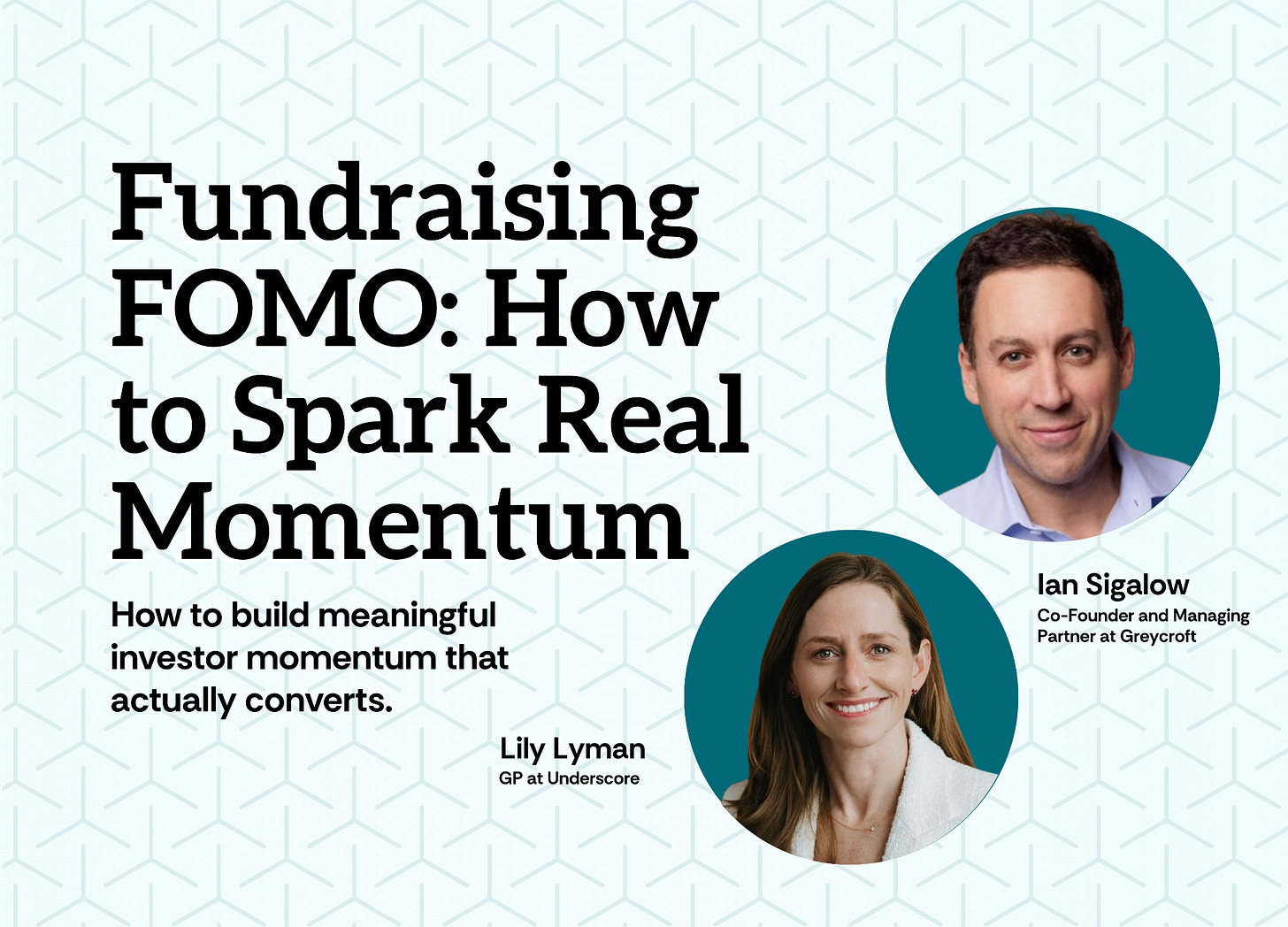Fundraising FOMO: How to Spark Real Momentum
How to build meaningful investor momentum that actually converts.
DEAR STAGE 2: We’re kicking off our first raise and trying to build momentum. How do we create FOMO without overplaying our hand? Any advice to share as we kick off our round? ~FIRST-TIME FUNDRAISER
DEAR FIRST-TIME FUNDRAISER: Fundraising as a pre-seed founder is more than having a great idea for a product. You have to be a great storyteller, relationship builder, and show that you can execute. When it comes to building FOMO, it’s easy to get lost in the process and over-optimize. So, how do you generate real excitement and a competitive process?
I recently joined a panel with Lily Lyman, GP at Underscore, and Ian Sigalow, Co-Founder and Managing Partner at Greycroft, on this very topic. We had a great conversation, and I wanted to share a few takeaways for founders preparing to raise:
Set your optimization priorities early.
Are you optimizing for valuation? Check size? Brand? Industry knowledge? GTM expertise? Customer intros? Partner chemistry? There is no right answer here, but you need to be honest with yourself and allocate your time appropriately.
Founders who don’t know their “must-haves” often get stuck over-optimizing the final round. If you know what you care about, you can focus your time and energy on the right firms and partners.
Lily shared a recent story of seeing a term sheet pulled after a founder pushed the decision deadline. Every point of interaction matters, and the VC looked at this moment as an example of the founder not holding up their end of the bargain. No deal is done until the money is wired.
Share your preferences, communicate them clearly, and be consistent.
Build the relationship over time.
The best kind of FOMO comes from visible, tangible progress. That means warming up multiple investor relationships over time so that when the time comes to raise, you can tighten your process to a 2–3 week window. These investors will already know you, have a view of your market/product, and be able to make a decision quickly.
Take early calls to get feedback
Make real asks of investors and see who follows through
Share regular updates over time
When you’re ready to raise, be clear and specific about your timeline and priorities. But do not bluff. VCs talk. Bluffing term sheets or deadlines that don’t exist is the fastest way to have a deal fall apart.
Balance aggressive goals with realistic expectation settings.
VCs track founder interactions, and you will be held to and measured against the numbers you share. Avoid the temptation to stretch reality or toss out numbers that sound good but aren’t locked in.
I shared an example of a founder who repeatedly shared a plan to go from launch to $5M ARR in their first year. They ended the year at $3.7M but that caused some friction in the fundraise. Instead of being met with excitement when they said “we went 0 to $3.7M”, the investors were asking “why didn’t you hit $5M? What happened?”.
Founders often feel pressure to show detailed traction early. Instead of offering detailed metrics or future projections too early, try sharing the problem you’ve identified, your thesis, early signals, and what you’re learning. Let them get to know you and your vision first.
Don’t try to “win the room” with aggressive projections. Instead, focus on doing what you say you are going to do and delivering reliably and consistently.
Do your diligence!
You’re signing up for a long-term relationship and want to take the time to get to really know the investors on the other side of the table. The “nurturing period” is about mutual qualification. Not every interested VC is the right partner, and not every founder fits an investor’s strategy.
Ian shared, “If a founder doesn’t do reference calls on a VC, that’s a red flag,” and I couldn’t agree more. Before you accept a term sheet, call founders who’ve worked with your potential investor. Ask for intros to portfolio CEOs, work your network to get to off-book references, and talk to a mix of folks - not every investment is a success story and you want to hear how your prospective partner operates during hard times too.
Done well, fundraising is a structured process that favors preparation, authenticity, and consistency. And remember, the goal isn’t just to raise capital but to bring on a long-term partner who believes in the future you’re building.
Until next week!



